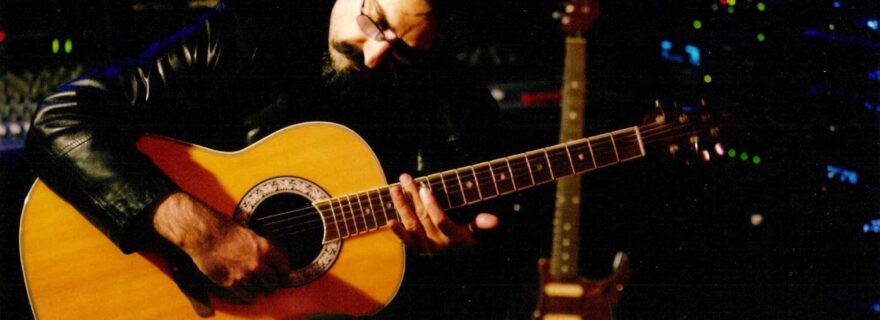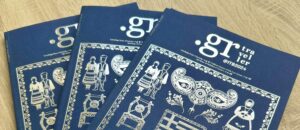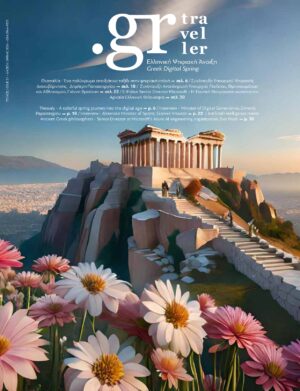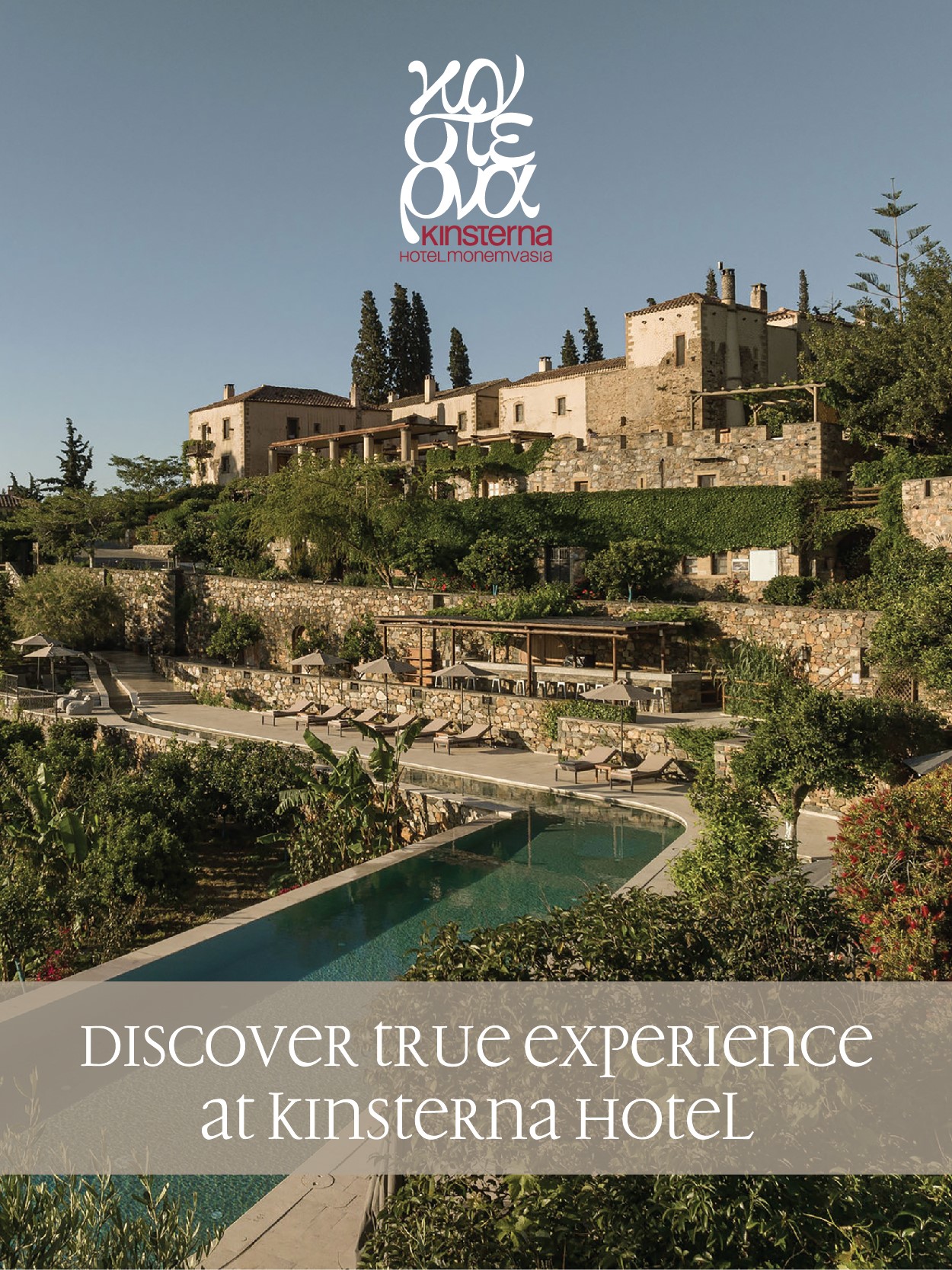A full-length interview of the music composer Dimitris Petsetakis to Lillian Psyla

Listen to the whole interview on Spotify!
The composer Dimitris Petsetakis takes us on a journey through his own musical career and confides his relationship with notes and sounds as well as his favourite destinations in Greece.
“I own over 330 guitars
and a total of over 1000 musical instruments
of all origins,
with which I compose”
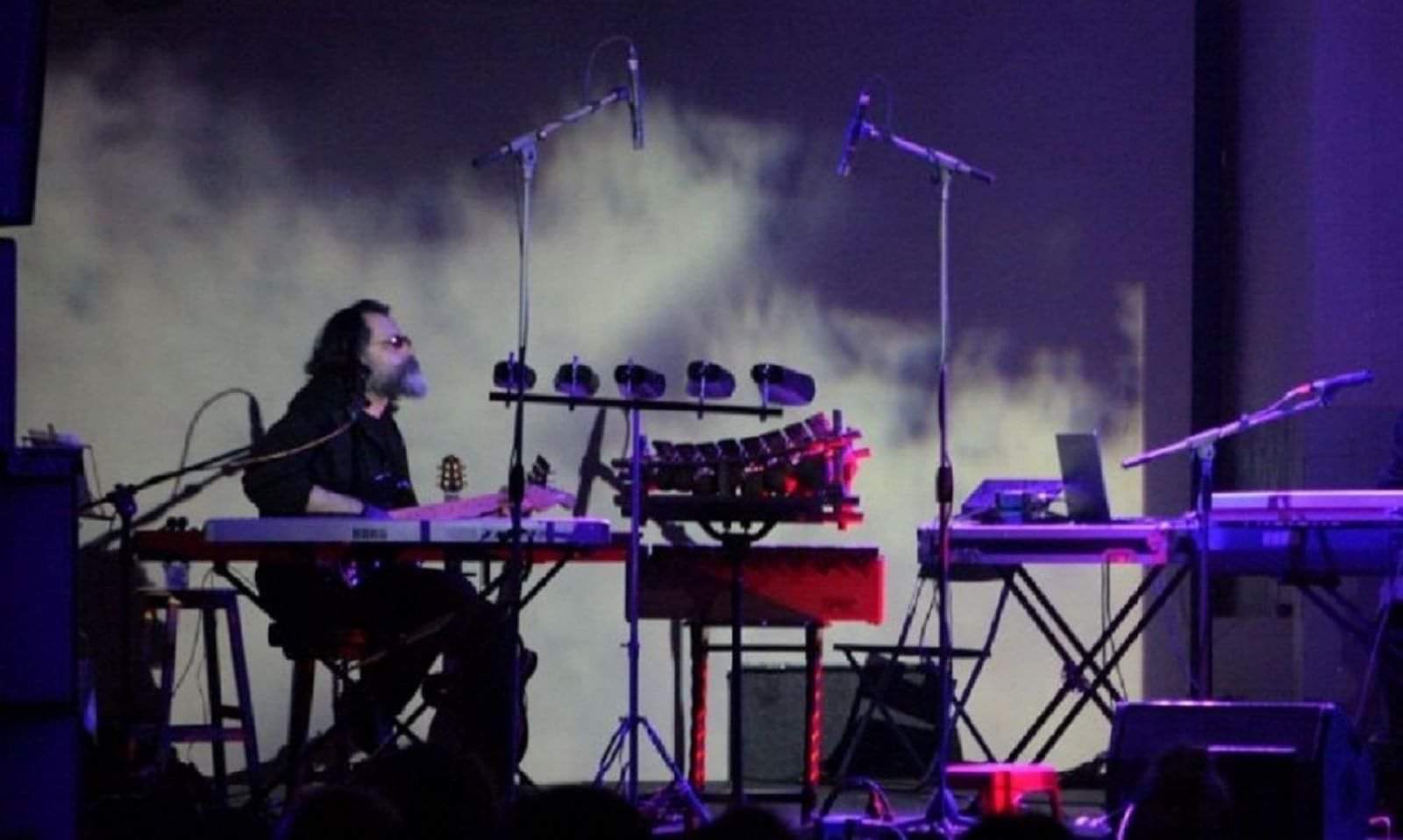
How did your whole relationship with music start?
The things that happen in our lives are not even in the subconscious, they are in the unconscious. And because I believe that even in our mother’s womb we have perceptions, I imagine it started there – given that in my music there is always a background that resembles amniotic fluid, and instruments – sounds – voices float on top of it. That’s where I see everything. From a voice, a howl, a ringing, a traditional instrument… So all of this started before I even realized time – its meaning. Every Sunday my father would turn on the church station and listen to the mass, clearly I was listening to Byzantine music. There was a record player in the house, so we listened, clearly, to classical music as well as Greek music of the time, such as Chiotis, Linda, etc. There was also a piano in the house, which my father played at social gatherings. So, therefore, music could be heard in the house. I had already made my choices, I had listened to rebetiko, because there were rebetiko music scenes in my house nearby (it was an old mansion in Piraeus), which I used to visit without my parents knowing it. As for music, I started with rock. The first vinyls I bought were by the Beatles and the Rolling Stones. My next step was in 1968, which is a globally significant chronological point. That’s when 2001: A Space Odyssey came out, which was a milestone for me. When the movie ended in the theater, I sat on the spot and rewatched it all over again. There were pieces by György Ligeti – like “Atmospheres”. He was an avant-garde composer who expounded on the “cluster” – an array of notes that can be atonal, but create a uniform sound full of meaning. So when I saw the scene with the monolith and the primitive man playing his music in the background with a cluster of choir voices, I was stunned and said “here we are.” Because it had the ambient, abstract elements that express me. So, as I was looking for Ligeti records, I discovered Xenakis, who had a talent for creating musical ensembles in a cosmic way. One might say that I discovered him “by accident”! Then came Brian Eno and his album “Ambient 4 – On Land”. This album is seminal for me, as it has influenced the way I produce sounds in the studio and combine the sounds of nature with those of synthesizers. So I would say that it’s all me and my music.
How do your listening and experiences influence your music?
Certainly for someone who has gone deeper into the music, you will see clearly what I am saying about the amniotic fluid. He will see that there is a background that lets the sound float and breathe and swim and dive freely. All the other stimuli are whatever you can imagine. It could be a glimpse of love, an important or horrific event, such as the destruction of the planet. One of my pieces of music, for example, is about the death of my father. My piece is called “Fading Slow” and I have actually made a simulation of my father’s gallows, because he died in my hands. That’s a tough piece. I mean, if someone doesn’t know the story behind the making of the track, they’ll know it’s a tough track.
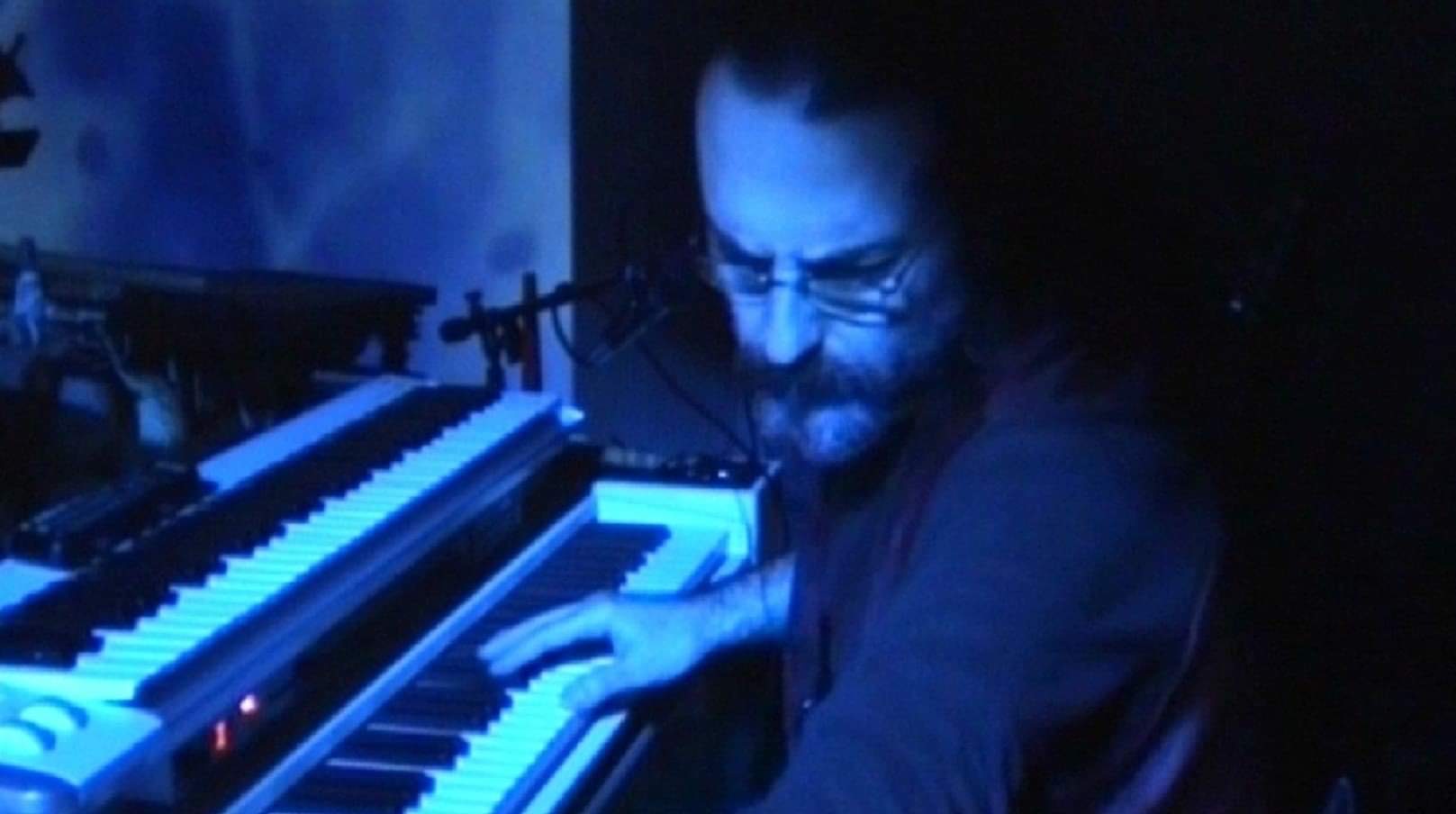
You could say that your musical career is divided into eras (eras)? And if so, what are they and what are their characteristics?
Yes, indeed, it is divided into seasons. Starting with rock, because in high school I had a rock band – we played support for Pavlos Sidiropoulos and other bands of the time. At that time I was aware that I wanted to do something else, but rock is rock, and especially at that time – before the dictatorship fell, there was a strong opposition expressed through music. Also, at that time, we played in concerts that were called “Music Mornings”. People came en masse then, hungry for freedom and expression. So, the post-communist revolution comes, I go up to Thessaloniki to study and there I started going to bars to jam. Later, when I was to leave to study in Paris to find my spiritual fathers (Xenakis, Castoriadis, Axelos, Poulatzas, etc.), I went to Crete for holidays and there I was called and informed that my father was in a bad condition. That’s when I made the decision not to go to Paris and stay in Greece to support the family. So, that was the first era, the era of anticipation for the music I wanted to make based on my listening habits. Then I set up as many as I wanted. The next era starts when I got out of the Navy and set up my first serious studio in Castella, where I had my first synthesizers and some basic guitars. This is how the first pieces were set up. I bought my first multi-channel, and as soon as I made the first pieces – looking, listening and thinking about Brian Eno and my other influences, the timing was right and the Third Programme Music Workshop was set up. The director and presenter was Michalis Gregoriou, with whom we were together in the Electronic Music Composers Association. So it became a group of composers at that time. We had a great time touring all over Greece, improvising and recording on the spot with very good sound equipment. These recordings were then rebroadcast on the Third Programme. This is the second season, which is still going on… […]
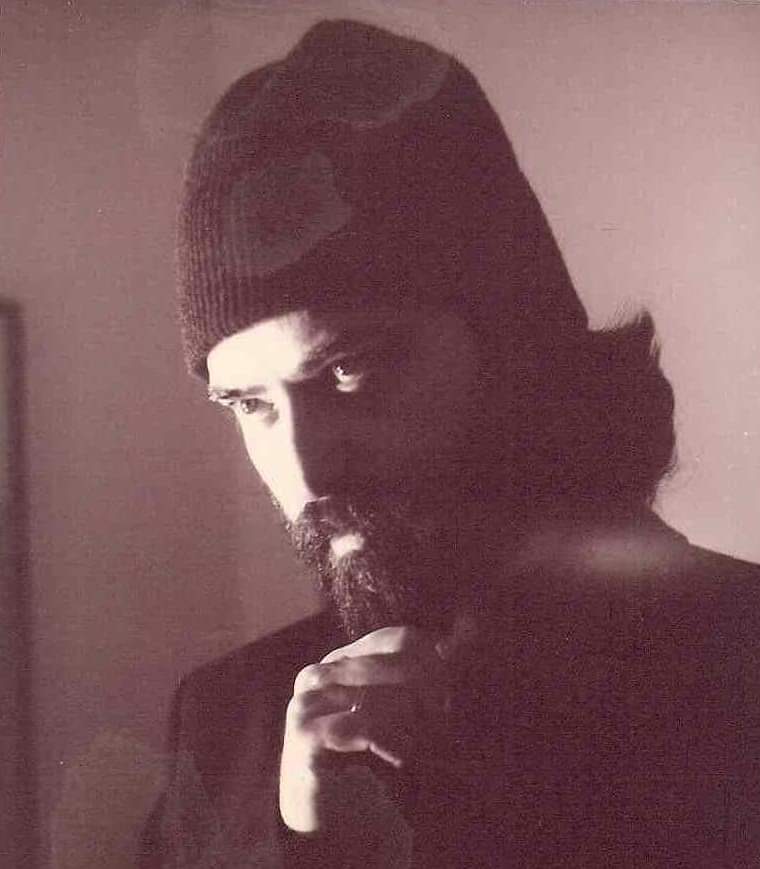
Tell us about your studio, about your countless guitars, the rare musical instruments you have been collecting for many years. Can you pick one out?
This space is my headquarters, a place for rehearsals and a showroom for the instruments I collect and use in my music. I own more than 330 guitars and a total of more than 1000 musical instruments of all origins, with which I compose. There is no one in particular that “stands out”. They all receive the same love.
We talked about your music and your creations, but we would like you to tell us about your five favourite destinations and how they have influenced your music.
Meteora, because that’s where I feel I can fly. I have seen it in a dream, flying literally over Meteora. Then there is Crete and Psiloritis. Crete is a distant homeland. Wherever I am in Crete, I charge batteries. What can I mention first… Knossos, Samaria Gorge, the Libyan Sea, the Loutro in Sfakia… Also, my favourites are the Cyclades, from which I have roots, with a special love for the volcano of Santorini and the country of Serifos. Finally, my beloved Thessaloniki, my second home – my memories. The blue of the Aegean Sea, the archaic sites and the sounds of the Greek sea bed are elements of Greece that have inspired me musically. Generally speaking, however, Greece is a country of charisma, because there is an impressive variety of landscapes.
Listen to the whole interview on Spotify!








